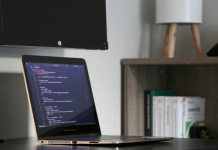
Keeping everyone safe at conferences is very important for both organizers and attendees. Conferences bring together professionals from various industries, fostering teamwork and generating new ideas. However, they can also attract people with bad intentions. Organizers can take steps to create a safe space where everyone feels comfortable.
Good security does more than stop threats. It builds trust and a sense of safety among attendees. Having a strong security plan helps everyone relax, allowing them to focus on networking and learning.
Here’s how to improve security at your next business conference:
Security Personnel
Having trained security staff on site is essential for ensuring safety. They act as a visible presence that helps attendees feel secure. Security personnel can monitor entry and exit points, manage crowds, and respond promptly to any incidents.
They can also help attendees find their way, whether by directing them to a session or assisting them in accessing resources. The presence of trained security staff boosts attendees’ confidence, enabling them to engage without worrying about safety.
Walk-Through Metal Detectors
Adding a walk through metal detector can enhance security. These devices screen attendees for prohibited items, like weapons. This measure helps reduce risks right from the start.
When people see metal detectors, they feel safer because they know the organizers care about their safety. The process is quick and discreet, so it doesn’t slow down the entry flow. Instead of seeing them as just a checkpoint, attendees view metal detectors as a commitment to their well-being, which in turn enhances their conference experience.
Access Control
Controlling access to the event is another key part of security. Limiting entry to approved individuals helps maintain a safe environment. Using badges or wristbands helps identify authorized individuals easily.
Technology, such as digital access control systems, can make this process faster. Attendees can register online and get QR codes for quick scanning at the entrance. This speeds up check-in and ensures only verified participants can enter. A solid access control system helps maintain safety.
Surveillance Systems
Utilizing advanced surveillance systems enhances the venue’s security. CCTV cameras can monitor key areas and record incidents as needed. This approach helps security staff address suspicious activities more effectively.
Live camera feeds can be monitored in real-time, allowing teams to identify potential issues before they escalate. The presence of cameras can deter inappropriate behaviour because people are less likely to misbehave when they know they are being watched.
Emergency Protocols
It’s crucial to have clear emergency plans for the event. Ensure that you create and share plans for various situations, such as medical emergencies or fires. Informing attendees about these protocols at the start helps them act quickly if needed.
A communication strategy also enhances safety. Utilizing mobile apps or text alerts for real-time updates ensures that everyone remains informed. Practicing these protocols with your team ahead of time prepares everyone to act confidently if needed.
Collaboration with Local Authorities
Building a strong relationship with local law enforcement can improve safety at your conference. Invite local police to your event and share the conference schedule and expected number of attendees with them. Their presence can reassure attendees and help prevent issues.
Local authorities can also provide important information about potential threats in your area. Collaborate with them to develop a customized security plan tailored to your conference. They can help with emergency response planning, giving everyone extra peace of mind.
Technology Integration
Using technology can make business conferences safer. Tools like facial recognition systems and mobile safety apps can improve safety processes. These technologies help with check-in and communication between security staff and attendees.
A security app enables attendees to quickly report problems, locate emergency exits, and receive real-time updates. By utilizing technology, organizers can create a more secure environment.
When planning your next business conference, remember that safety is important. Each measure you take secures the venue and improves the overall atmosphere, promoting open communication and collaboration. A proactive approach to security protects everyone and enhances the experience.
Health and Sanitation Measures
To ensure everyone’s safety at conferences, prioritize health and cleanliness. Good hygiene helps prevent sickness and makes attendees feel secure. Set up hand sanitizing stations throughout the venue, especially at entrances, food areas, and restrooms.
Consider checking for symptoms of illness during registration. Use clear signs to encourage the wearing of masks and maintaining social distancing. When attendees see that their health matters, they will feel more comfortable and enjoy the event.
Training for Staff and Volunteers
A well-trained team can improve conference safety. Train all staff and volunteers on emergency procedures, conflict resolution, and how to assist attendees in distress. Practice different scenarios so they can respond effectively.
Ensure staff are familiar with the venue layout and available resources. An informed team can help attendees quickly. This creates a safer atmosphere, enabling attendees to engage and network with confidence.
Clear Communication Channels
Clear communication is key to a smooth and safe conference. Utilize multiple platforms to keep attendees informed before and during the event. Share important information about security, health measures, and emergency contacts so everyone knows what to expect.
During the conference, we have designated points of contact for security issues and general questions. Providing easy access to help encourages attendees to voice any concerns. Open and clear communication helps build trust and safety throughout the event.
Mental Wellness Support
It’s essential to prioritize mental wellness for everyone attending the conference. Events can feel overwhelming due to a busy schedule, networking, and social interactions. Providing mental wellness support helps create an environment where everyone feels valued and cared for.
You might set up quiet areas where attendees can take breaks from the busy atmosphere. These spaces should be calm, with comfortable seating and relaxation resources, such as stress-relief tools or meditation guides.
Having trained mental health professionals on-site can help attendees who feel anxious or overwhelmed. Organizers can also offer workshops or sessions that focus on mental health and wellness strategies to encourage self-care and resilience during the event.










